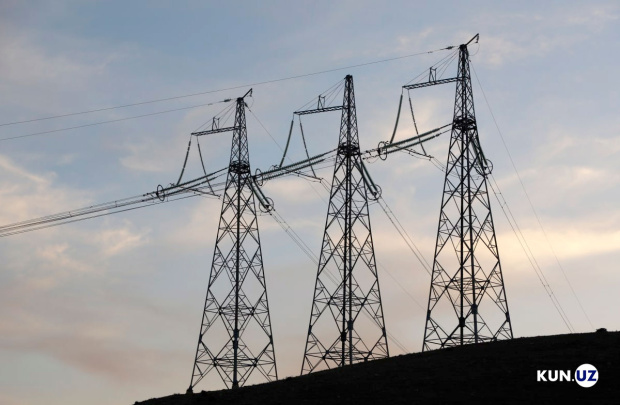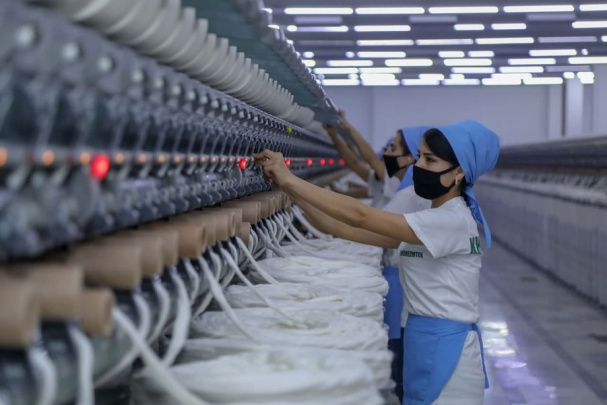The Finance Minister Timur Ishmetov said that borrowing money is becoming more expensive. Therefore, in the economic policy of Uzbekistan, attention should be focused on structural reforms, which envisage the use of private funds, rather than the state budget and borrowing opportunities.
The Finance Minister Timur Ishmetov spoke about the conditions for maintaining high growth rates of Uzbekistan’s economy in the coming years at the second International Economic Forum held in Samarkand on November 3.
The Central Bank predicted that by the end of 2022, the inflation rate would be around 12-12.5%, and in 2023, it would decrease to 8.5-9.5%. GDP is expected to be 5.2-5.8%, 4.5-5% in 2023, 5-6% in 2024 and 6-6.5% in 2025, respectively.
“Indeed, at the beginning of the year, we had good growth rates. When this crisis started, we had “more modest” forecasts. But our experience has shown that if you look at the previous years, for example, when there was a pandemic of COVID, which lasted from 2020 to 2021, we found that the best way to solve these problems is to continue our structural reforms,” the finance minister noted.
According to him, now in Uzbekistan, “there is not enough fiscal space to implement something without these reforms”.
“Yes, three or four years ago we focused on borrowing. I would say that the world had good conditions for it then. We have traditionally had a low level of debt so that we can raise funds. In addition, all our partners and investors were ready to support. Now we are in a very difficult period. We could see a global recession coming, all the central banks are tightening monetary policy, raising interest rates. Frankly speaking, our debt has become more expensive,” he said.
Fiscal space is the ability to use resources to achieve a goal without jeopardizing the financial position of the state budget or stable economic situation, as well as without violating other restrictions created by its national legislation, supreme authorities or creditors (mainly large creditors such as the International Monetary Fund or the World Bank), opportunities to provide or use them.
Timur Ishmetov said that the global recession will limit the government’s financial spending and force them to start creating their own financial buffers (reserves) in this environment.
“Thus, we need to focus on structural reforms that will lead to a general economic policy orientation towards the use of private funds and not on fiscal space and borrowing. In the near-medium term, we have to rely on our private money - this is the only way,” he said.
The head of the Finance Ministry admitted that due to the regional crisis and capital changes, the implementation of these reforms will be much more difficult, which is not positive for the region as a whole.
“But even in such conditions, we need to advance these reforms to make sure that private investors are interested in coming to Uzbekistan and making investments. We need to do a lot to liberalize prices in some areas, to change the public sector so that the private sector has an equal chance to compete in its field. We need to complete the transformation with a very good privatization program and positive results,” the minister said.
Timur Ishmetov believes that if Uzbekistan continues these reforms, the country’s economy can grow by 5% or more.
“But we are not worried about 2023, about the years after that, 2024-2025. If we continue the reforms, we will maintain this growth. If we push back the reforms and implement them in a delayed scenario, it will be almost impossible to sustain growth from the second and third years. The situation may be different in different countries, but today it is important for us to continue the reforms that guarantee the transition of the economy to private funds and not to public money. That is the only way we have to focus,” he said.
The total foreign debt of Uzbekistan decreased by 1.8% or $721.5 million since the beginning of 2022 and amounted to $38.8 billion as of April 1, which is 2.3 times more than in 2018 ($17.2 billion). The country has tried many times to get external debt, including issuing Eurobonds, but in the current environment, when the central banks of the world are tightening monetary policy (increasing interest rates), loans for countries have also become more expensive.
For reference, the US Federal Reserve has set the key rate at 3.75-4% per annum. This was taken as a countermeasure against the country’s record high inflation (8.2%) in the last 40 years.
According to him, the short-term termination of stimulus measures aimed at supporting the economy by the central banks of major economies will lead to an increase in global interest rates. This may lead to an increase in the cost of borrowing in the foreign market for the economy of Uzbekistan, a decrease in the volume of exports and budget revenues due to a decrease in the price of gold.
In the first quarter, the unstable geopolitical situation in the world led to a slowdown in borrowing by the public and private sectors, which led to a slight reduction in external debt. At the same time, the government did not meet the state budget deficit limit due to high public spending and asked the deputies to increase the limit.
The Central Bank noted that GDP growth in the coming years will depend on the logical completion of structural reforms, the reduction of the state’s role in the economy, and other factors. It is necessary to start regulating public finances from 2023, the regulator said, because inflation is forming at a higher level than forecasts due to a high budget deficit.






